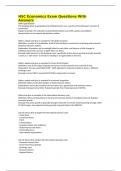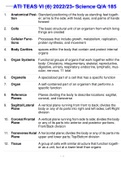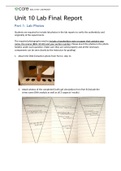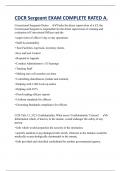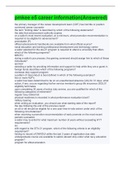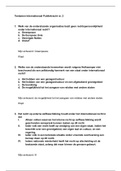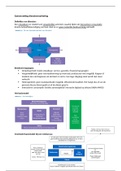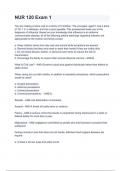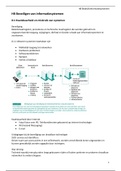Tentamen (uitwerkingen)
HSC Economics Exam Questions With Answers
- Vak
- Instelling
HSC Economics Exam Questions With Answers Define globalisation The breaking down of geographical & artificial barriers over a period of time (between countries & economies) Explain/ Example: The reduction in protectionist policies e.g. tariffs, quotas and subsidies demonstrates an increased trad...
[Meer zien]
